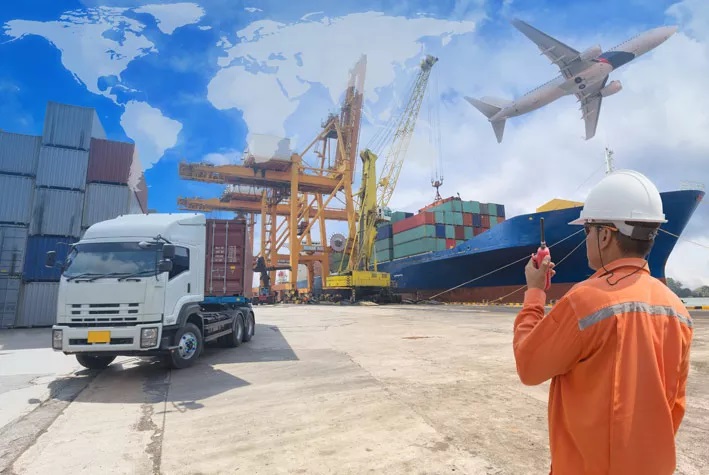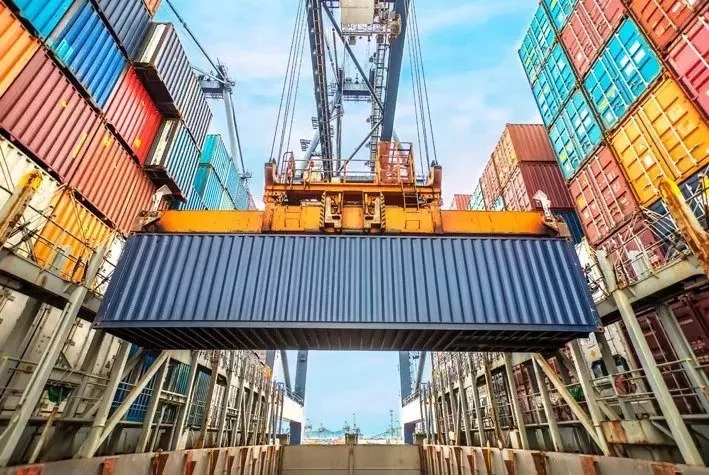Shipping cargo to another country is a crucial process, and when that destination is Pakistan, it becomes even more critical due to the country’s unique geographical, political, and climatic conditions. Damage to cargo can occur for a variety of reasons, and it can lead to financial losses and delays in delivery.
There are several factors to consider when shipping goods to Pakistan, including proper packaging, selecting reliable shipping services, understanding customs regulations, and ensuring proper handling and loading. Other important considerations include using appropriate shipping containers, securing cargo for transportation, monitoring and tracking shipments, getting insurance coverage, addressing climate and environmental factors, and maintaining clear communication and documentation.
Following these guidelines can significantly reduce the risk of damage to your cargo. By taking precautions and working with reliable partners, you can ensure your shipment arrives safely in Pakistan. Let’s delve deeper into each of these factors.
Proper Packaging and Crating
The importance of proper packaging and crating cannot be overstated. Items should be packaged with the journey in mind, taking into consideration the type of cargo, the length of transit, and the possible risks involved. Use materials like bubble wrap, foam peanuts, and sturdy cardboard for packaging.

Crating is another level of protection, especially for fragile or valuable goods. Consider custom crating for such items, as this provides extra padding and shielding, reducing the chances of damage during transit. Always label your packages clearly with fragile stickers if necessary.
Selecting Reliable Shipping Services
A significant part of ensuring the safety of your cargo lies in choosing a trustworthy shipping service. Do your research and select a company that has a proven track record in shipping to Pakistan. Check their reviews and ratings and ensure that they are experienced in handling the type of cargo you want to send.
Additionally, ask about the shipping company’s damage rates. A company that can show a low damage rate is likely to be cautious and responsible when handling your cargo. Partnering with the right shipping company can give you peace of mind that your cargo will arrive safely and undamaged.
Understanding Customs Regulations
Customs regulations in Pakistan can be complex and are subject to change. Ensuring that you understand these regulations is vital in preventing delays that could potentially damage your cargo. Improper documentation or misunderstanding the rules could lead to your shipment being held in customs, increasing the risk of damage.
Consult with an expert or hire a customs broker to assist you with the customs process. They can provide valuable advice on tax and duty costs and necessary documentation, ensuring your cargo moves smoothly through customs.
Ensuring Proper Handling and Loading
Proper handling and loading are paramount to ensuring your cargo arrives in Pakistan in one piece. Mishandling during the loading process can cause significant damage, especially to fragile items. Ensure your shipping company uses professional and experienced loaders, and that they follow industry-standard loading procedures.

Moreover, handling equipment such as forklifts, pallet jacks, and hand trucks should be in good working order. The use of modern equipment will lessen the chances of damage during loading and unloading.
Using Appropriate Shipping Containers
Different types of cargo require different types of shipping containers. You need to choose a container that suits the nature of your cargo. If you are shipping sensitive or fragile items, consider using specialised containers that provide extra protection.
Ensure your shipping container is dry and clean before loading your cargo. A damp container can cause moisture damage to your goods, while a dirty container could contaminate your shipment.
Securing Cargo for Transportation
Securing your cargo properly is an essential step in preventing damage during transit. Use materials such as straps, ropes, and chains to secure your cargo within the shipping container. It should be stable enough to withstand the movements and jostling during the journey.
Depending on the nature of your goods, you may also need to use padding materials to prevent the cargo from rubbing against the container walls or other goods.
Monitoring and Tracking Shipments
Tracking your shipment is not just about knowing the location of your cargo, but also about ensuring its safety. Many modern shipping companies offer real-time tracking services. These can alert you to any delays or issues in transit, allowing you to take prompt action if needed.

Using GPS tracking devices can also provide additional peace of mind. They allow you to monitor the condition of your cargo throughout the journey, including factors such as temperature and humidity, which can impact certain types of goods.
Insurance Coverage for Protection
Even with the best precautions, there’s always a risk of damage during transit. This is where insurance comes into play. An appropriate insurance policy can protect you financially in case of unforeseen accidents or damage.
Discuss with your shipping company or an independent insurance agent to ensure you have the right type of coverage for your cargo. Make sure you fully understand the terms of the insurance policy, including what’s covered and what’s not.
Addressing Climate and Environmental Factors
Pakistan’s climate varies significantly across the country, from the deserts of Sindh to the snow-capped peaks of Gilgit-Baltistan. Understanding these variations is crucial for ensuring the safety of your cargo.
For instance, if you’re shipping electronic items, high humidity could cause damage. On the other hand, extreme cold could harm perishable items. Work with your shipping company to address these factors and select the best shipping and packaging methods for your cargo.
Communication and Documentation
Finally, clear communication and accurate documentation are vital in the shipping process. Make sure you are on the same page with your shipping company about all the details of the shipment, including pick-up, transit, and delivery schedules.
Maintain a comprehensive record of all the shipping documents, including the bill of lading, packing list, and insurance policy. These will be crucial in case of any disputes or claims.
Shipping cargo to Pakistan doesn’t have to be a daunting task. By considering the factors discussed in this guide, you can ensure your cargo arrives safely and undamaged.
